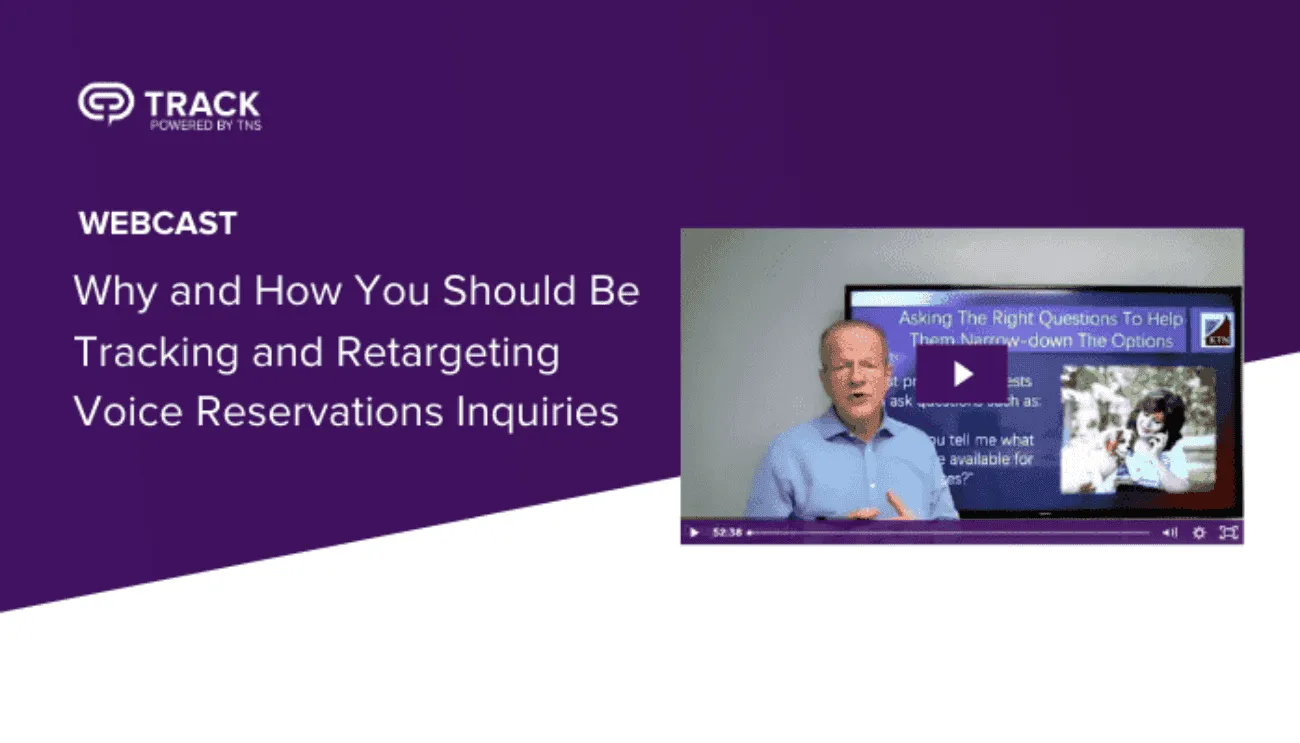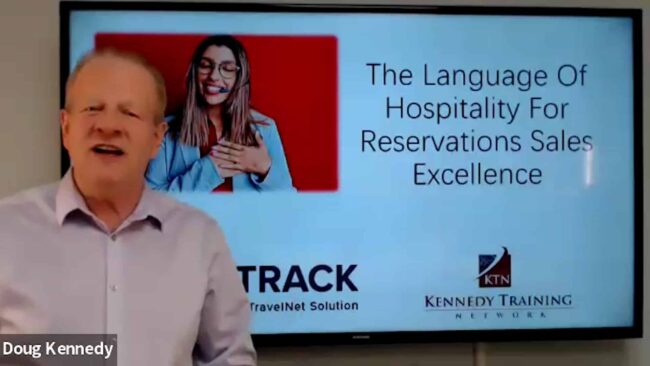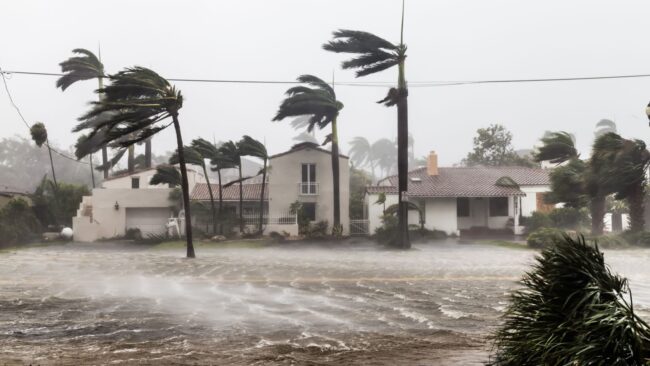Webinar: Why and How You Should Be Tracking and Retargeting Voice Reservations Inquiries Copy

Traditionally, marketing and distribution leaders view the role of reservation agents as being to field inquiry calls, answer questions, and to attempt to close the sale on the first inquiry call. Surely, we should always have the “winner’s mindset” when we answer. Yet sometimes callers are just not ready to book regardless of what we say. This is especially true at resorts and at vacation home rental companies. Here are a few reasons:
- Longer stays.
- Larger parties and therefore…
- More people involved in deciding.
- Restrictive deposit and cancellations.
- They are overwhelmed by the number of options viewed online.
Perhaps the biggest reason of all is that leisure callers are far more emotionally vested in the outcome of their buying decision than business travelers because few things are more important these days than one’s annual vacation plans.
Therefore, it is important to shift from a “sales fishing” to a “sales hunting mindset. Marketing leaders have become increasingly obsessed with the “sales fishing” paradigm, which is to wait for the digital “bait,” such as the website, SEO optimization, and OTA presence to lure-in the digital bookings. Those with a “sales hunting” mentality will view every call, every email inquiry, and every inbound chat or OTA IM as a potential sales lead to follow-up on.
These days, inbound reservations leads are disguised. Rather than asking “Hi, I need info on booking…” today’s callers often start with “I just have a quick question about…”:
- Check-in times.
- Pandemic era questions. (What’s open? Cleaning protocols? Any pandemic specials?)
- Pet policy.
- Parking.
- Bedding.
Smart agents will turn those inquiries into leads by asking a key transitional question:
“Now that I’ve answered your questions, may I ask what dates/homes/rooms you are looking at so I can assist you here in our on-site reservations office?”
To succeed as a sales hunter, your team will of course need a system such as TrackPulse that makes it easy to:
- See pop-up text box with details when the call-back.
- Trace the lead on a “lead stream.”
- Read a summary of previous correspondence in order to personalize the messaging.
Here are some additional tips.
Asking the right questions to narrow down the options, vs. listing what is available.
When callers say: “Can you tell me what you have available for these dates?” respond with “Sure, I can assist. Let me ask you a few questions so I can help you find the best options.”
As the conversation progresses, investigate further with questions such as: “Which is more important, location or view?” and “Are you looking for something more upscale or economical?”
When, after you have just presented three or more options, callers continue to ask “What else do you have?” avoid falling into the trap of listing more and more options which in the end only confuses them further. Instead ask questions such as:
“How do those sound so far?
“Is there something you’re looking for that I’ve not yet mentioned?”
“Can you tell me more about what you have in mind?”
What To Say To Get The Caller To Provide A Phone And Email For Follow-up
Of course, to be able to “hunt” after the call, you will need to get an email and phone number. Here are some tips.
Do not ask “Would you like me to email those to you?” or
“Did want to give me your email?”
Instead say: “Okay. Let me get your email address so I can send you these links along with my direct contact information.”
Getting the email is the most important task, but try also to get their phone number and implied permission to call to follow-up.
Do NOT say: “Would you like me to call you to follow-up?”
Instead say: “Super. I’ll shoot you over an email with my direct contact information. I’ll also check back with you to see what questions you have and what else we can do. May I have the best phone number…”
How To Follow-up: Be Persistent But Not Pushy
Start all follow-up calls and emails by restating something specific you learned about “the story” behind their plans…
“It was wonderful to hear about the plans for your (insert special reason for travel…)”
End all emails and calls by expressing interest and offering personal assistance.
“Again, my name is Doug with in-house reservations. Let us know what else we can do to assist you with planning this important trip.”
You should generally follow-up at least two additional times:
One to three calendar days after the initial inquiry, depending on their “story.”
Three more days after that, unless they state a longer decision-making timeframe.
Make at least one phone call. When calling: Start by introducing yourself, your company to refresh their memory.
Do not say: “Hi, is this Mr. Johnson?”
Instead say: “Hello Mr. Johnson, this is Cindy from Brand X Resort, I had spoken with you a few days back about your (insert reason for travel)…”
One final reminder: Never throw guilt!
Do not say: “Since I didn’t hear back from you…”
Instead say: “Just wanted to see what else I can do on our end to secure your booking.”




